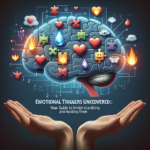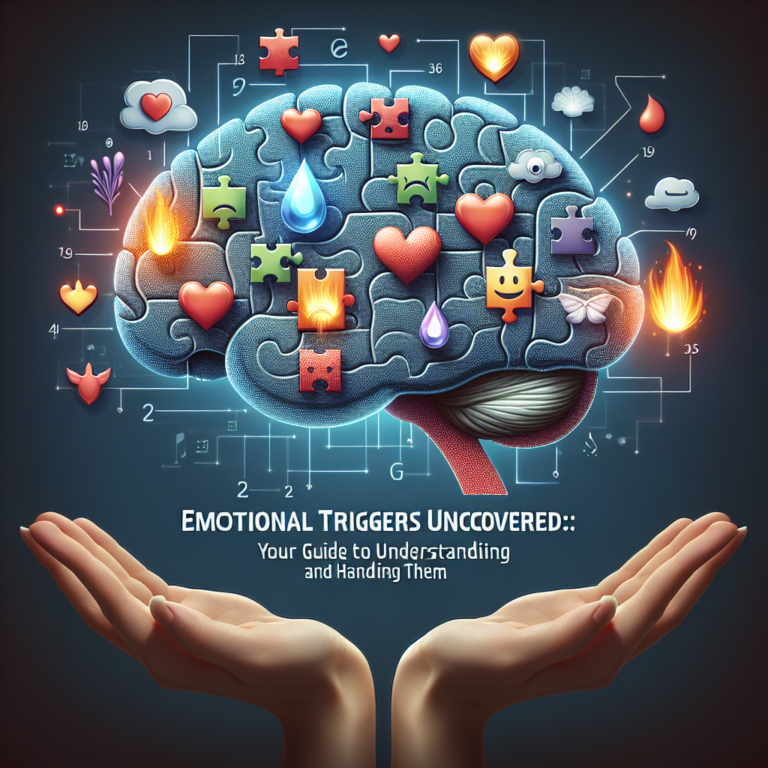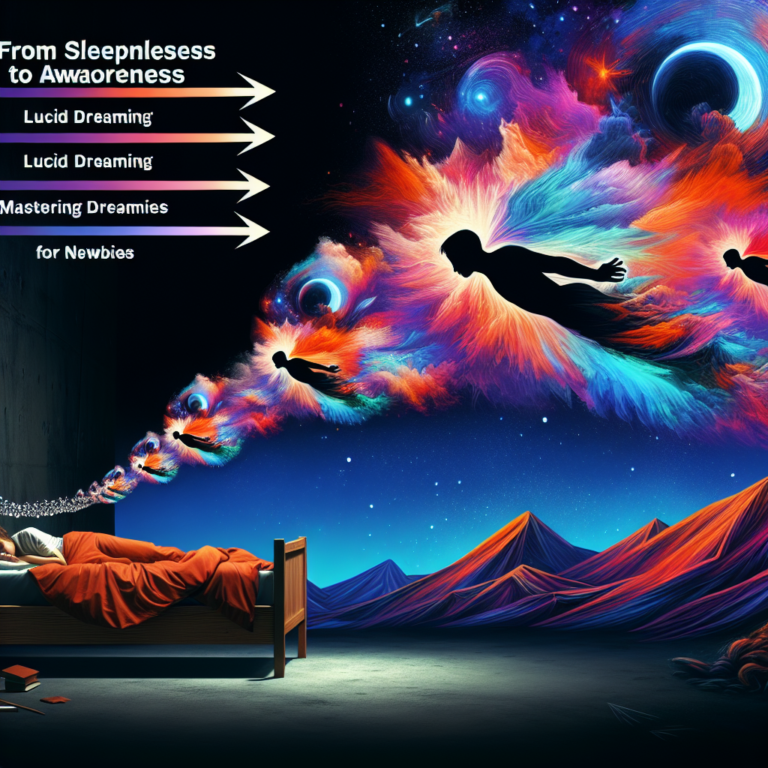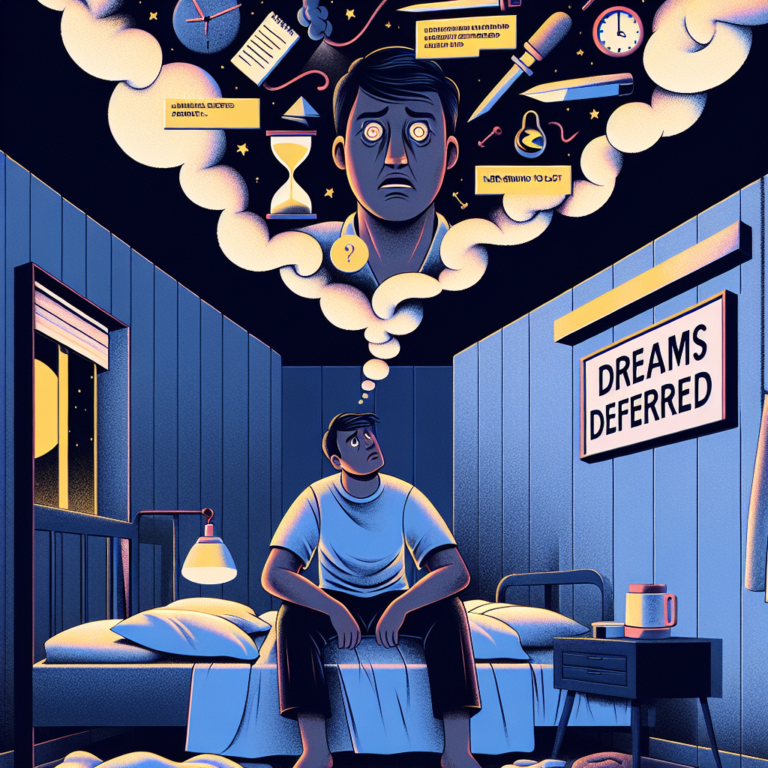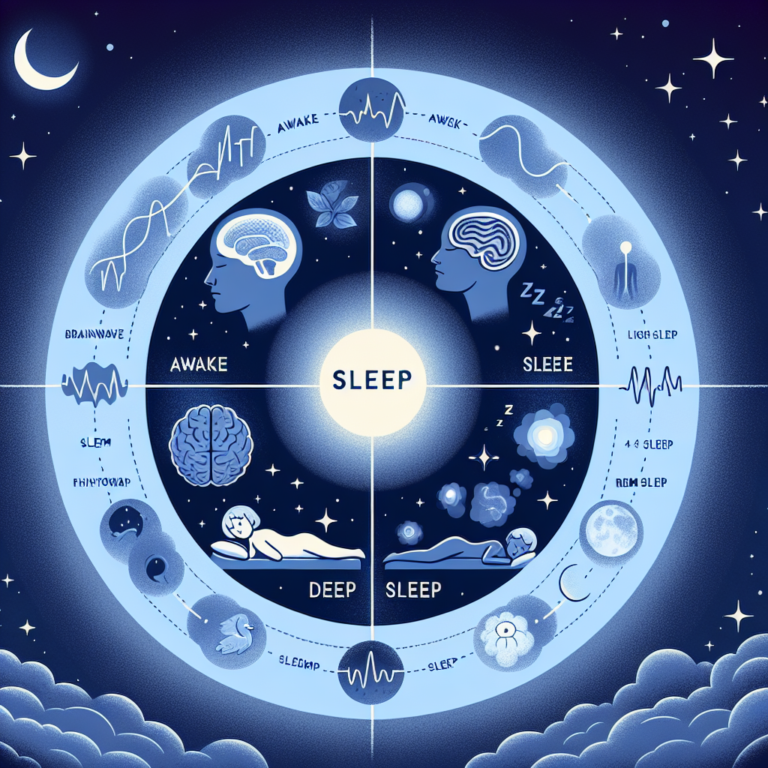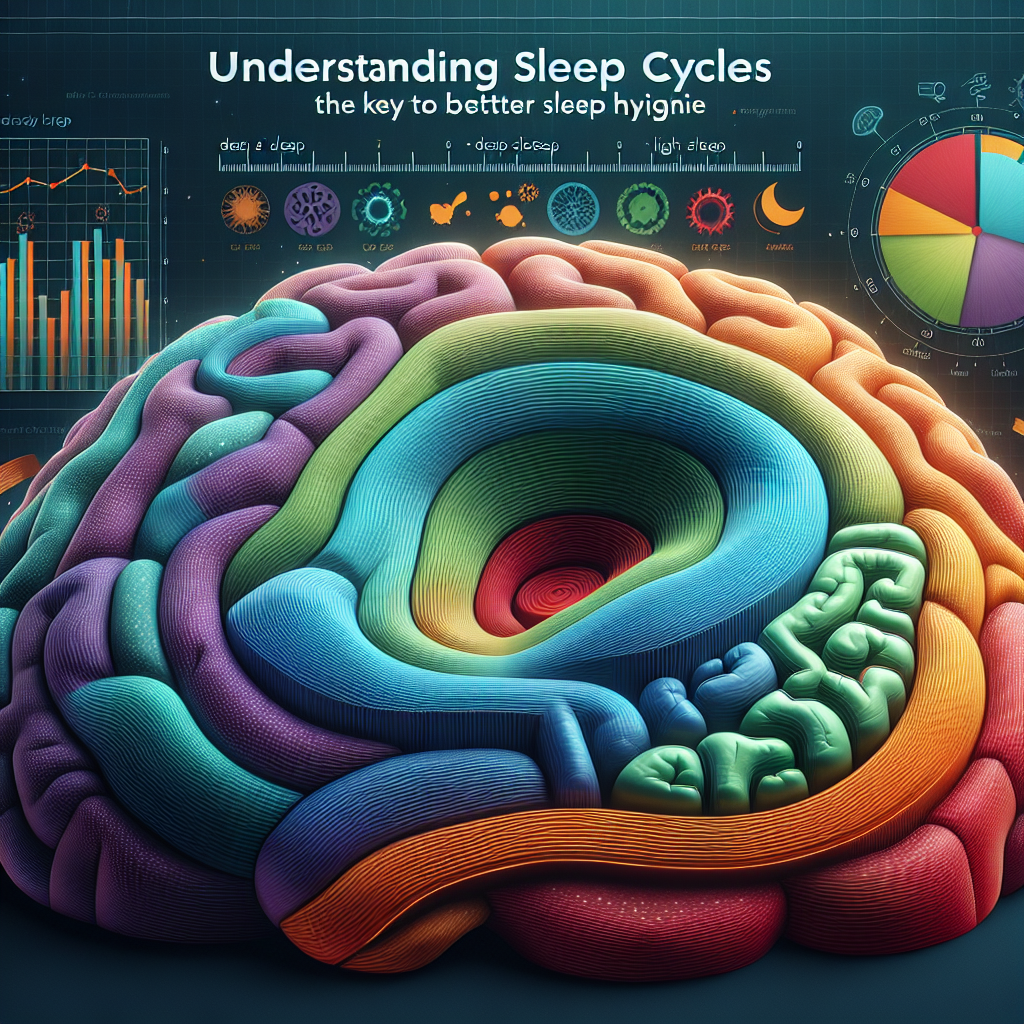
Understanding Sleep Cycles: The Ultimate Key to Better Sleep Hygiene
Introduction
Sleep is one of the most vital components of our overall health, yet many people overlook its importance or fail to understand its complexity. Understanding sleep cycles: The key to better sleep hygiene is not just a catchy phrase; it’s a fundamental principle that can transform how we sleep and, consequently, how we live. In our fast-paced world, where busy schedules and constant distractions make good sleep seem elusive, comprehending the intricacies of our sleep patterns can lead us to your best sleep yet.
In this article, we will explore the various stages of sleep, the importance of sleep hygiene, and practical strategies to help you improve your sleep quality by understanding the science behind sleep cycles.
The Anatomy of Sleep Cycles
Sleep is not a uniform state; instead, it comprises distinct cycles that vary in depth and nature. Each cycle lasts approximately 90 minutes and repeats several times a night. There are two primary types of sleep: Rapid Eye Movement (REM) and Non-Rapid Eye Movement (NREM) sleep, which includes three stages.
1. NREM Sleep
NREM sleep is divided into three stages:
Stage 1 (N1): This is the lightest stage of sleep, lasting just a few minutes. During this phase, the body transitions from wakefulness into sleep. Muscle activity slows, and we may experience brief muscle contractions.
Stage 2 (N2): This stage lasts about half of our sleep cycle. It’s characterized by a decrease in body temperature and heart rate, alongside the presence of sleep spindles—bursts of rapid brain activity that may play a role in memory consolidation.
- Stage 3 (N3): Also known as deep sleep or slow-wave sleep, this is the most restorative stage of sleep. The body repairs itself, and there is minimal brain activity. The immune system is bolstered, and physical recovery occurs during this phase.
2. REM Sleep
Typically, our sleep cycle culminates in REM sleep, which is when the most vivid dreaming occurs. The eyes move rapidly under the eyelids, and the brain becomes more active. This phase supports emotional regulation, memory processing, and cognitive functioning.
Sleep Cycle Chart
| Sleep Stage | Duration | Characteristics | Functions |
|---|---|---|---|
| N1 (Stage 1) | A few minutes | Transitioning to sleep, light sleep | Preliminary relaxation |
| N2 (Stage 2) | ~20 minutes | Heart rate slows, body temperature drops | Memory consolidation |
| N3 (Stage 3) | 30-40 minutes | Deep sleep, very low brain activity | Physical restoration, healing |
| REM | ~10-20 minutes | Brain active, vivid dreaming | Emotional regulation, memory processing |
The Importance of Sleep Hygiene
Now that we’ve outlined the basic components of sleep cycles, we need to discuss sleep hygiene—the habits and practices that contribute to the quality of sleep. Just like eating healthy and exercising contribute to physical health, good sleep hygiene is essential for mental and emotional well-being.
Why Sleep Hygiene Matters
Good sleep hygiene not only promotes better sleep but also minimizes the risks of sleep disorders, depression, anxiety, and other health conditions. With a firm understanding of sleep cycles, we can create a conducive environment for restorative sleep.
Key Elements of Sleep Hygiene
Consistent Sleep Schedule: Going to bed and waking up at the same time each day can reinforce your body’s natural rhythms.
Create a Relaxing Bedtime Routine: Incorporating relaxation techniques such as reading, meditation, or gentle stretching can help signal to your body that it’s time to wind down.
Optimize Sleep Environment: Ensure your bedroom is dark, quiet, and cool. Consider using blackout curtains or a white noise machine to promote an ideal sleeping environment.
Limit Screen Time: Exposure to blue light from screens can disrupt sleep cycles. Aim to avoid screens at least an hour before bedtime.
- Watch Your Diet: Avoid large meals, caffeine, and alcohol before bedtime, as these can interfere with your sleep quality.
Real-World Applications: Case Studies
Case Study 1: The College Student
Meet Sarah, a 20-year-old college student who struggled with insomnia during exam periods. Burdened by stress and poor sleep hygiene, her grades began to slip. After learning about understanding sleep cycles: the key to better sleep hygiene, she took various steps.
Analysis: By prioritizing her bedtime routine and adhering to a consistent sleep schedule, Sarah improved her overall sleep quality and academic performance. She implemented a wind-down routine, and her reliance on caffeine decreased significantly.
Case Study 2: The Working Professional
John is a 35-year-old project manager who believed that his work commitments demanded he sacrifice sleep. He found himself taking long naps during his lunch breaks.
After attending a workshop on sleep hygiene, he learned about the significance of sleep cycles and structured napping. As a result, he established a more balanced work-life routine, allowing him to get adequate sleep without sacrificing productivity.
Analysis: John’s understanding of sleep cycles helped him to appreciate the value of restorative sleep over fragmented naps, leading to improved focus and creativity at work.
Case Study 3: The New Parent
Linda, a new mother, faced challenges with sleep due to her newborn’s erratic sleep patterns. Initially overwhelmed, she used resources on understanding sleep cycles: the key to better sleep hygiene to create a more sustainable routine for herself and her baby.
Analysis: By syncing her sleep schedule with her baby’s sleep cycles, she learned to maximize her rest during the periods her baby slept, allowing her to recover both physically and mentally.
Common Misconceptions about Sleep
Understanding sleep cycles often comes with its own set of misconceptions. Here, we clear up five of the most common ones.
1. Myth: Everyone Needs 8 Hours of Sleep
While 8 hours is often cited, the ideal sleep duration varies from person to person based on age, genetics, and lifestyle. Many adults function optimally on 7 or even 9 hours.
2. Myth: Alcohol Helps You Sleep Better
Though alcohol may initially sedate, it disrupts sleep cycles later in the night, affecting REM sleep quality.
3. Myth: Napping Always Interferes with Night Sleep
Short naps (under 30 minutes) can complement and improve overall sleep without disrupting the night rest.
4. Myth: Sleep is a Waste of Time
Research clearly shows that good sleep enhances productivity, cognitive functioning, and emotional health.
5. Myth: Older Adults Don’t Need as Much Sleep
Aging may alter sleep cycles, but older adults generally still require the same amount of sleep as younger adults.
FAQs
1. What are the benefits of understanding sleep cycles?
Understanding your sleep cycles helps you optimize your sleep quality, leading to improved mental, physical, and emotional health.
2. How can I track my sleep cycles?
Consider using sleep tracking apps or devices that can monitor your sleep patterns, provide insights, and suggest improvements based on data.
3. What can I do if I can’t fall asleep?
If you struggle to fall asleep, evaluate your sleep hygiene practices, consider relaxation techniques, and avoid screens before bed.
4. How many sleep cycles do I go through each night?
On average, adults experience 4 to 6 full sleep cycles each night, each lasting about 90 minutes.
5. Are there foods that promote better sleep?
Certain foods, such as cherries, almonds, and fatty fish, contain compounds that may help promote sleep by naturally increasing melatonin levels.
Conclusion
Understanding sleep cycles: The key to better sleep hygiene is more than just a trendy slogan—it’s an essential framework for enhancing your health and well-being. By familiarizing yourself with the different stages of sleep, developing a solid sleep routine, and prioritizing sleep hygiene, you can experience profound benefits that extend beyond the bedroom.
With actionable insights drawn from real-world experiences, you are now equipped to improve your sleep quality significantly. Remember, investing in sleep is investing in your future health, productivity, and happiness. Prioritize your sleep, and watch how it transforms your life.
As you embark on this journey, keep in mind: sleep is not a luxury; it’s a necessity. Embrace the knowledge of your sleep cycles, and watch as it leads you toward a brighter, more energized you.

